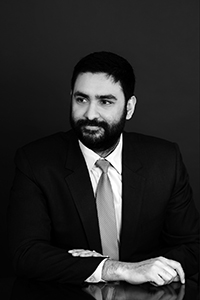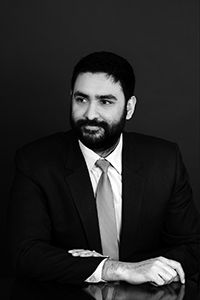What the Court of Criminal Appeal held about the appellant in the said case before it is substantially true about the appellant before us. In other words, the onus on an accused person may well be compared to the onus on a party in civil proceedings. we cannot accept the finding of the High Court. 2(3)) of the Company stood transferred to and vested in the Corporation. This brings us to the interpretation of s. 11 indicates that the said judgment takes in one passed by a single Judge in an appeal against the order of a Tribunal.
 this Court generally does not re-examine the matter for itself while exercising its jurisdiction under Art. Thereafter the appellants came to this Court and obtained special leave; and that is how the matter has come up before us. Consequently it held that the discharge of the workmen was fully justified. 259 of the Act as it stood after amendment by Act II of 1954. It is said, with some force, that if this construction be accepted, there will be an anomaly, namely, that in a case where a single Judge of the High Court passed a judgment in exercise of his appellate jurisdiction in respect of a decree made by a Court subordinate to the High Court, a further appeal to that Court will not lie unless the said Judge declares that the case is a fit one for appeal, whereas, if in exercise of his second appellate jurisdiction, he passed a judgment in an appeal against the order of a Tribunal, no such declaration is necessary for taking the matter on further appeal to the said High Court Property Advocate Court.
this Court generally does not re-examine the matter for itself while exercising its jurisdiction under Art. Thereafter the appellants came to this Court and obtained special leave; and that is how the matter has come up before us. Consequently it held that the discharge of the workmen was fully justified. 259 of the Act as it stood after amendment by Act II of 1954. It is said, with some force, that if this construction be accepted, there will be an anomaly, namely, that in a case where a single Judge of the High Court passed a judgment in exercise of his appellate jurisdiction in respect of a decree made by a Court subordinate to the High Court, a further appeal to that Court will not lie unless the said Judge declares that the case is a fit one for appeal, whereas, if in exercise of his second appellate jurisdiction, he passed a judgment in an appeal against the order of a Tribunal, no such declaration is necessary for taking the matter on further appeal to the said High Court Property Advocate Court.
and in the case of second appellate jurisdiction, if the, appeal is against the order of a Tribunal, which is not a Court. Pathak is not able to make good his submission on this aspect of the case. all the assets and liabilities appertaining to the life insurance business (called the controlled business, vide s. 11 contemplates conferment of appellate jurisdiction on the High Court by an appropriate Legislature against orders of a Tribunal. Karnedan Kothari(2) is, therefore, not applicable and Mr.
10 of the Letters Patent. As we have pointed out earlier, cl. on application to a Magistrate having jurisdiction in the cantonment or in any place where the person from whom such tax, rent or money is recoverable may for the time being be residing, by the distress and sale of any movable Best Property Lawyers in Chandigarh High Court of, or standing timber, or growing crop belonging to such person which is within the limits of such magistrate’s jurisdiction, and shall if payable by the owner of any Best Property Lawyers in Chandigarh as such, be a charge on the Property Lawyers in Chandigarh until paid; provided.
10 and 11 of the Letters Patent leads to the conclusion that even the first part of cl. The decision of the Madras High Court in Venkata Krishnayya v. If the express intention of the Legislature is clear, it is not permissible to speculate on the possible reasons that actuated the Legislature to make a distinction between the two classes of cases. Far from detracting from the generality of the words “judgment by one Judge of the said High Court”, cl.
1956 which was the “appointed day” according to s. 136 of the Constitution. The second question with respect to wages for the strike period was not pressed 9n behalf of the appellants and was therefore decided against them. The relevant part of the section now reads as follows :- “Notwithstanding anything elsewhere contained in this Act, arrears of any tax, rent on land and buildings and any other money recoverable by a Board or a Military Estate Officer under this Act or the rules made thereunder may be recovered together with the cost of recovery either by a suit or.
But in the case of a judgment made in a second appeal against the decree or order of a Court subordinate to the High Court, no further appeal lies unless the said Judge declares that the case is a fit one for appeal. We are unable to accept this argument as correct. because it is plain that in dealing with the question of good faith the High Court has misdirected itself materially on point of law. It therefore answered the first question referred to it in favour of the respondent.
It is not permissible, by construction, to restrict the scope of the generality of the provisions of cf. If it can be shown that the appellant has led evidence to show that he acted in good faith, and by the test of probabilities that evidence proves his case, he will be entitled to claim the benefit of Exception Nine. “Provided that in any such suit or proceeding for the fixation of standard rent or for the eviction of a tenant from any premises to which section 54 does not apply, the court or other authority shall have regard to the pro- visions of this Act.
 3 is not attempting to furnish evidence of any oral agreement in derogation of the promissory note but relying on the existence of a collateral agreement in writing–Exs. The argument that a combined reading of cls. But in the present case. 10 deals only with appeals from Courts subordinate to the High Court has no force. It may be, for ought we know, the Legislature thought fit to impose a limitation in a case where 3 Courts gave a decision, whereas it did not think fit to impose a limitation in a case where only one Court gave a decision.
3 is not attempting to furnish evidence of any oral agreement in derogation of the promissory note but relying on the existence of a collateral agreement in writing–Exs. The argument that a combined reading of cls. But in the present case. 10 deals only with appeals from Courts subordinate to the High Court has no force. It may be, for ought we know, the Legislature thought fit to impose a limitation in a case where 3 Courts gave a decision, whereas it did not think fit to impose a limitation in a case where only one Court gave a decision.
A & G which form parts of the same transaction as the promissory note–Ex. and just as in civil proceedings the court trying an issue makes its decision by adopting the test of probabilities, so must a criminal court hold that the plea made by the accused is proved if a pre- 1 [1943] 2 All. 92 of the Evidence Act do not apply in the present case, because .